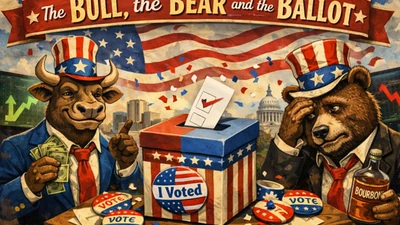As a politically conservative investor, I’ve always believed that economic policy and personal responsibility go hand in hand. We don’t look to the government to fix the markets—we look at what the government does to the markets. This week, the landscape is once again a reminder of how critical it is to stay informed and positioned wisely.
1. Inflation Remains the Real Threat
The upcoming CPI and PPI data this week aren’t just numbers—they’re a referendum on the economic mismanagement we’ve seen in recent years. Printing trillions, disrupting energy independence, and bloating the federal bureaucracy has a cost. Inflation is still eroding the purchasing power of American families and investors alike.
Core CPI is expected to rise again. That’s not “transitory.” That’s the price of bad policy. As investors, we should continue to favor inflation-resistant assets and companies with strong pricing power. Hard assets, dividend-paying stocks, and select commodities still make sense.
2. Watch the Fed Like a Hawk
Let’s be clear: the Federal Reserve, which helped pump air into this bubble with zero-percent interest rates for a decade, is now caught between a rock and a hard place. If inflation doesn’t cool convincingly, rate cuts will be off the table—despite the election-year pressure from politicians desperate to juice the economy.
We need to prepare for the possibility of higher-for-longer rates. This means trimming exposure to overvalued tech and staying grounded in fundamentals. I’m also watching regional banks and small caps that could either rebound or roll over depending on credit conditions.
3. Earnings Season: Facts Over Fads
Apple’s WWDC, Oracle’s AI push, Adobe’s earnings—all of this is exciting, but let’s not confuse narrative with value. A conservative strategy emphasizes facts over hype. The AI craze has driven certain tech stocks into dangerous territory.
That doesn’t mean ignore them—just approach with discipline. Are these companies profitable? Do they have pricing power? Are they reliant on government contracts or subsidies? I prefer companies that make real products, not just speculative promises.
4. Don’t Ignore Geopolitical Moves
While much of Wall Street is asleep at the wheel, U.S.–China trade talks are back on the agenda. We’ve already seen the damage done by decades of offshoring and economic dependence on China. Investors should pay attention here—not just for short-term volatility, but as a long-term thesis for reshoring, defense, and energy security.
I’m keeping an eye on industrials, infrastructure, and cybersecurity—real businesses tied to national resilience, not ESG nonsense.
5. Stay Nimble, But Stay Grounded
This week is a microcosm of the broader market: short-term optimism propped up by long-term uncertainty. My strategy is to stay diversified but value-driven. Own what you understand. Avoid what smells like a bubble. And never underestimate how much policy—especially from Washington—can distort risk and reward.
Final Thought
Being a conservative investor in today’s economy isn’t just a mindset—it’s a form of self-defense. We believe in free markets, limited government, and accountability. That means tuning out the noise, following the money, and trusting results over rhetoric.
This week’s data will test the market’s resolve. Let’s be ready—with a clear head, a firm strategy, and a conservative compass.










